Politics
Mafabi pledges local rice production boost as Butaleja farmers cry foul over imports
The outcry dominated rallies held by Forum for Democratic Change (FDC) presidential flag-bearer James Nathan Nandala Mafabi, who pledged to ban rice imports and restore the farmers’ lost hope.
Mafabi pledges local rice production boost as Butaleja farmers cry foul over imports
By: John Musenze, Journalists @New Vision
____________________
Rice farmers in Butaleja district have decried collapsing prices and unfair competition from cheap imports, saying their once thriving livelihood is now on the brink of extinction.
The outcry dominated rallies held by Forum for Democratic Change (FDC) presidential flag-bearer James Nathan Nandala Mafabi, who pledged to ban rice imports and restore the farmers’ lost hope.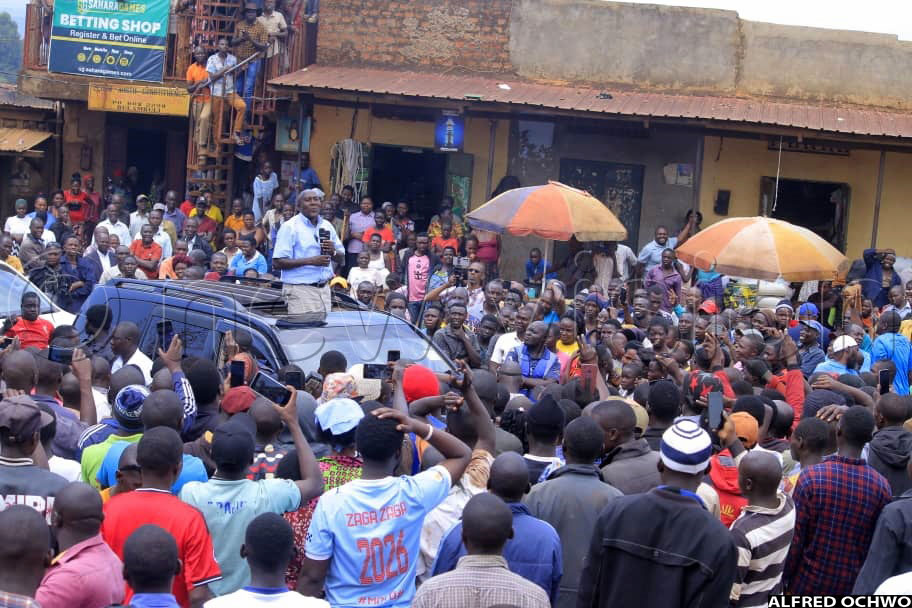
Speaking at rallies in Butaleja and Tororo districts on Tuesday, October 14, 2025, Mafabi said the Government’s decision to allow large-scale importation of rice has crippled local production, leaving farmers unable to find markets for their harvest.
“We have fertile soils and enough rainfall to produce enough rice for both home use and export. Once I am elected, we shall stop rice importation and invest heavily in local production to empower our farmers,” Mafabi told cheering supporters in Kachonga and Busolwe town.
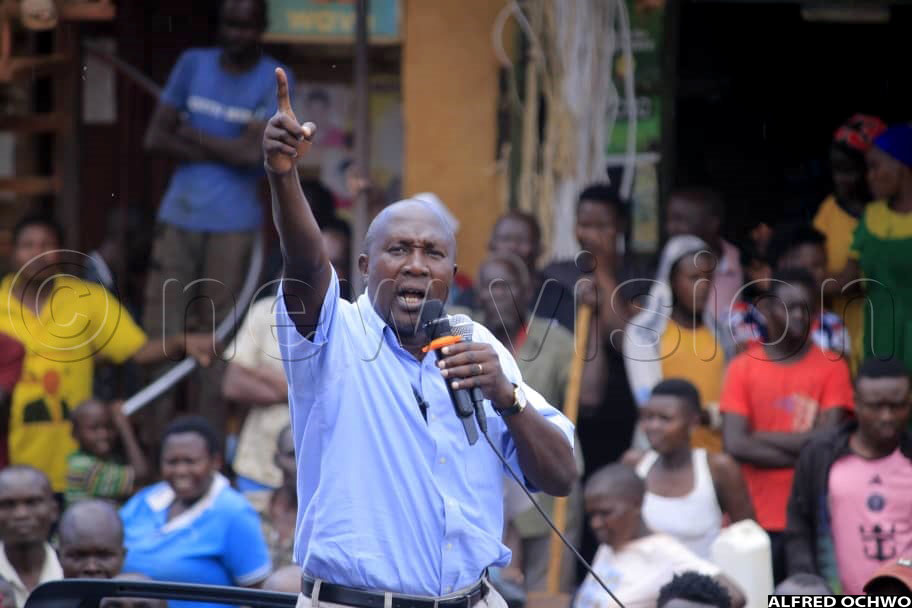
"I will discuss with our neighbouring counterparts on the best solution, especially in harvests that normally have high yields but as a coffee grower, this move shows that the Government doesn't care about its people," he added.
Farmers say imported rice from countries such as Pakistan and Tanzania is sold cheaply, forcing local producers to lower their prices to as little as Shillings 1,500–1,800 per kilo at the farm gate, yet it used to cost between shillings 2,000 and 2,500, while the same rice retails in shops for up to shillings 6,000.
Fred Hapule, a farmer from Butaleja, said they were losing money every season due to a lack of government protection and market access.
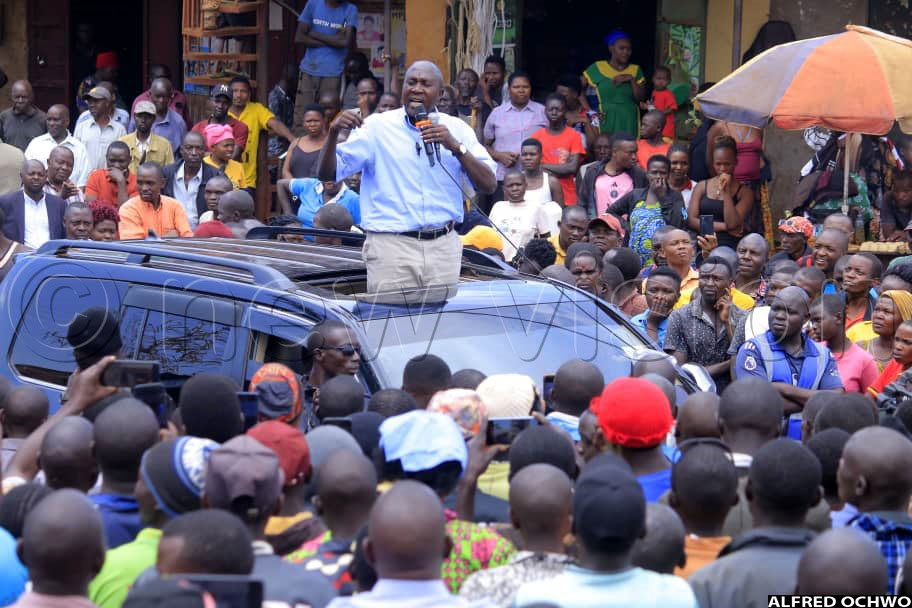
“We can feed the entire country if the Government stops imports and supports us. We are losing our livelihoods because our rice can’t compete with foreign products,” Hapule said.
Is the ban proposal practical?
However, New Vision Online has assessed the proposal and found that it is impracticable to ban rice imports due to several factors including demand and supply and international trade regulations.
For instance, a 2022 paper by SEATINI Uganda titled: Position Paper On The Removal of the 18% Vat Exemption on Rice Imports To Uganda indicates that the country is a net importer of rice, yet local consumption is growing fast.
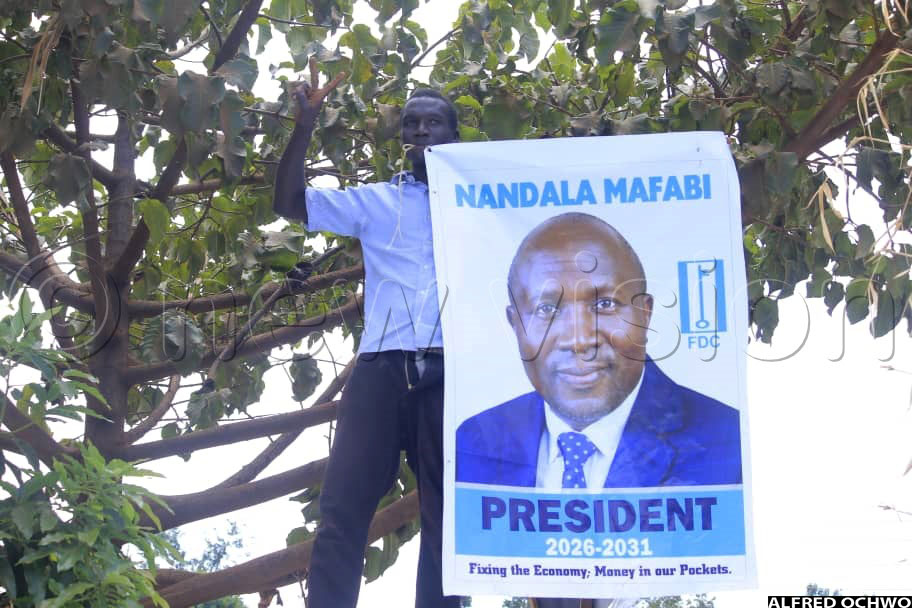
"The increased local consumption of rice presents huge economic opportunities for smallholder farmers, who produce 90% of the rice in Uganda. These smallholder farmers grow rice mainly as a cash crop because of its significantly higher gross margins compared to other cereals.
The demand for rice in Uganda stands at about 680,000 tonnes, but the total local production is approximately 350,000 tonnes as of 2021, leaving a deficit of 230,000 tonnes. This notwithstanding, Uganda will continue to be a net importer unless domestic production improves significantly," the paper reads.
Wetland evictions
Beyond the market challenges, farmers also complained about being evicted from wetlands, which they have long depended on for rice cultivation. The order issued early this year by environment state minister Beatrice Anywar, banned rice growing in wetlands nationwide.
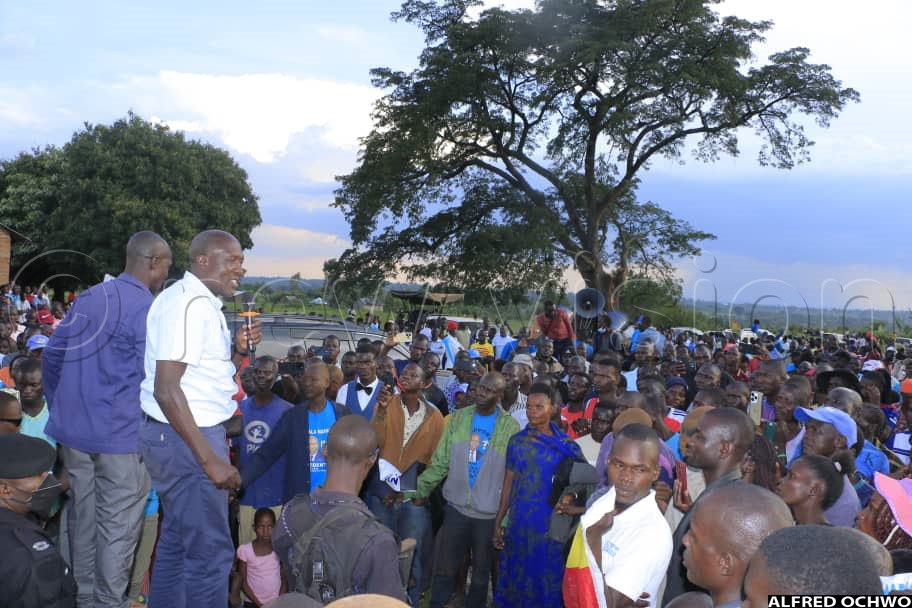
Farmers now claim the directive has been abused by some officials who allegedly demand bribes to allow them to continue cultivating.
“People are being extorted under the guise of environmental protection,” Mafabi said, condemning the move as unfair and economically destructive.
He vowed to restore the rights of local rice growers and promote sustainable wetland use that balances conservation with livelihoods.
Butaleja’s low lying terrain makes it prone to flooding, which frequently destroys crops, homes, and roads. Farmers told Mafabi that the Government has failed to create drainage or recovery programmes, leaving them trapped in cycles of loss.
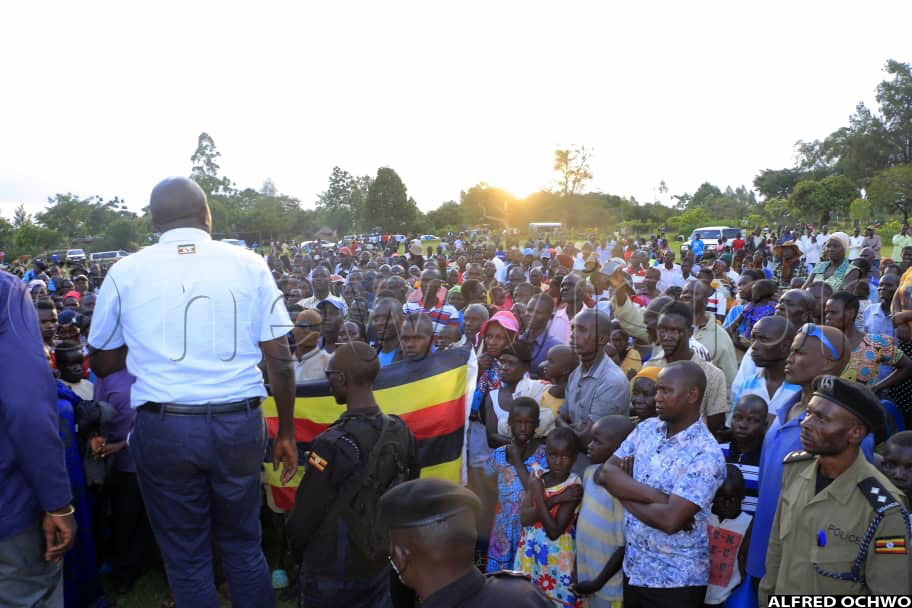
The poor state of feeder roads, they said, worsens the situation by limiting their ability to transport produce to markets.
“Government only works on highways, yet farmers use feeder roads to get food to buyers,” one resident lamented.
Mafabi promised that his government would create a special disaster and agricultural recovery fund to help communities cope with floods and droughts and prioritise the rehabilitation of rural roads to improve market access.
Agriculture prioritisation
Mafabi, who was joined by top FDC leaders, including Budadiri East Member of Parliament Isaiah Ssasaga, treasurer Geoffrey Ekanya, vice-chairperson for eastern Uganda Jamal Wante, and vice-president Margaret Wokuri, said the FDC’s 2026–2031 manifesto will heavily prioritise agriculture.
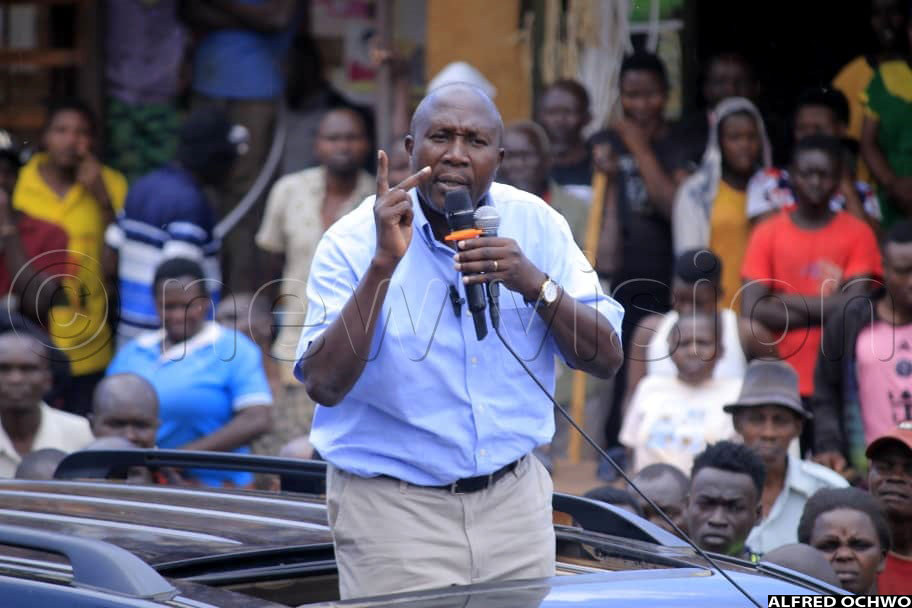
“Agriculture will receive the biggest share of our budget. We will fund every major cash crop like rice, coffee, cocoa, and tea and support cooperatives so farmers can access affordable loans, fertilisers, and better markets,” he said.
He also pledged to establish value-addition factories to help farmers process and package rice locally, reducing post-harvest losses and ensuring higher earnings.
“Once we have our own mills and factories, we will sell finished rice instead of raw grain. That’s how we keep money in Ugandans’ pockets,” Mafabi explained.
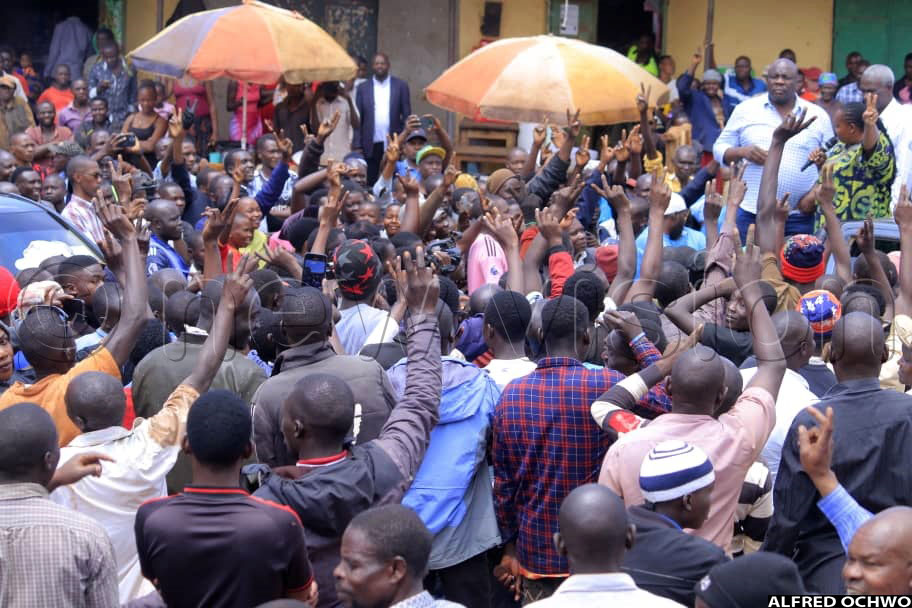
Under the manifesto slogan of Fixing the Economy, Mafabi said FDC’s vision is to make Uganda a self-reliant and production-driven economy.
“Our farmers in Butaleja, Tororo and across Uganda are not lazy; they simply lack government support. We shall change that. Agriculture must become a profitable venture again,” he said.
He accused the current administration of ignoring the agricultural sector despite it being the backbone of Uganda’s economy, saying the neglect had deepened poverty in rural areas.
“The coffee Bill was not in favour of farmers. In my government, key stakeholders will always come first, not people who have never touched a hoe,” he added, drawing applause from the crowd.
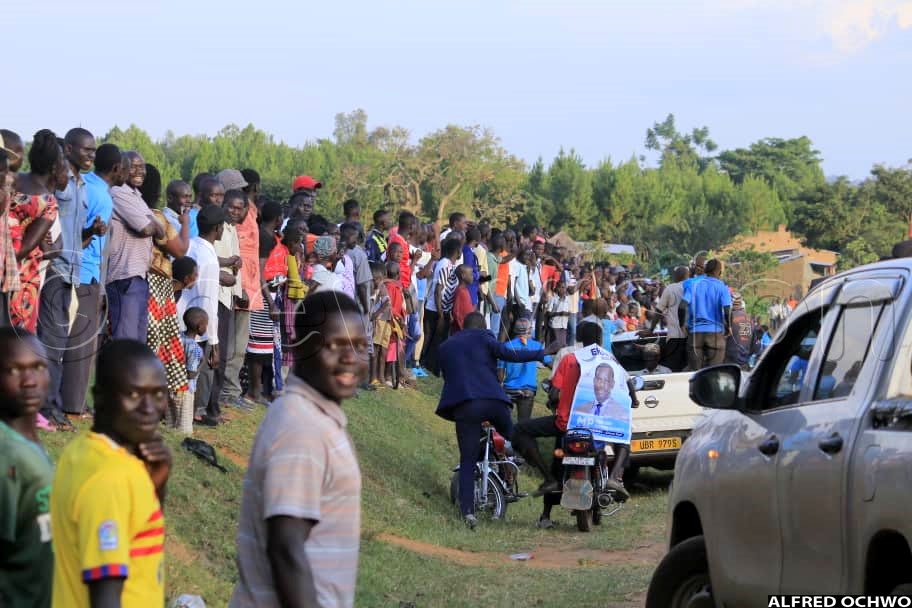
As part of its ongoing voter mobilisation in eastern Uganda, the FDC announced upcoming rallies in Busia district. Mafabi said the campaign aims to listen to citizens’ concerns and offer practical solutions to transform livelihoods.
“This election is not about hate or fighting Museveni, it’s about people’s survival. We must build a Uganda that values its farmers, teachers, and health workers. That is the foundation of our prosperity,” Mafabi concluded.